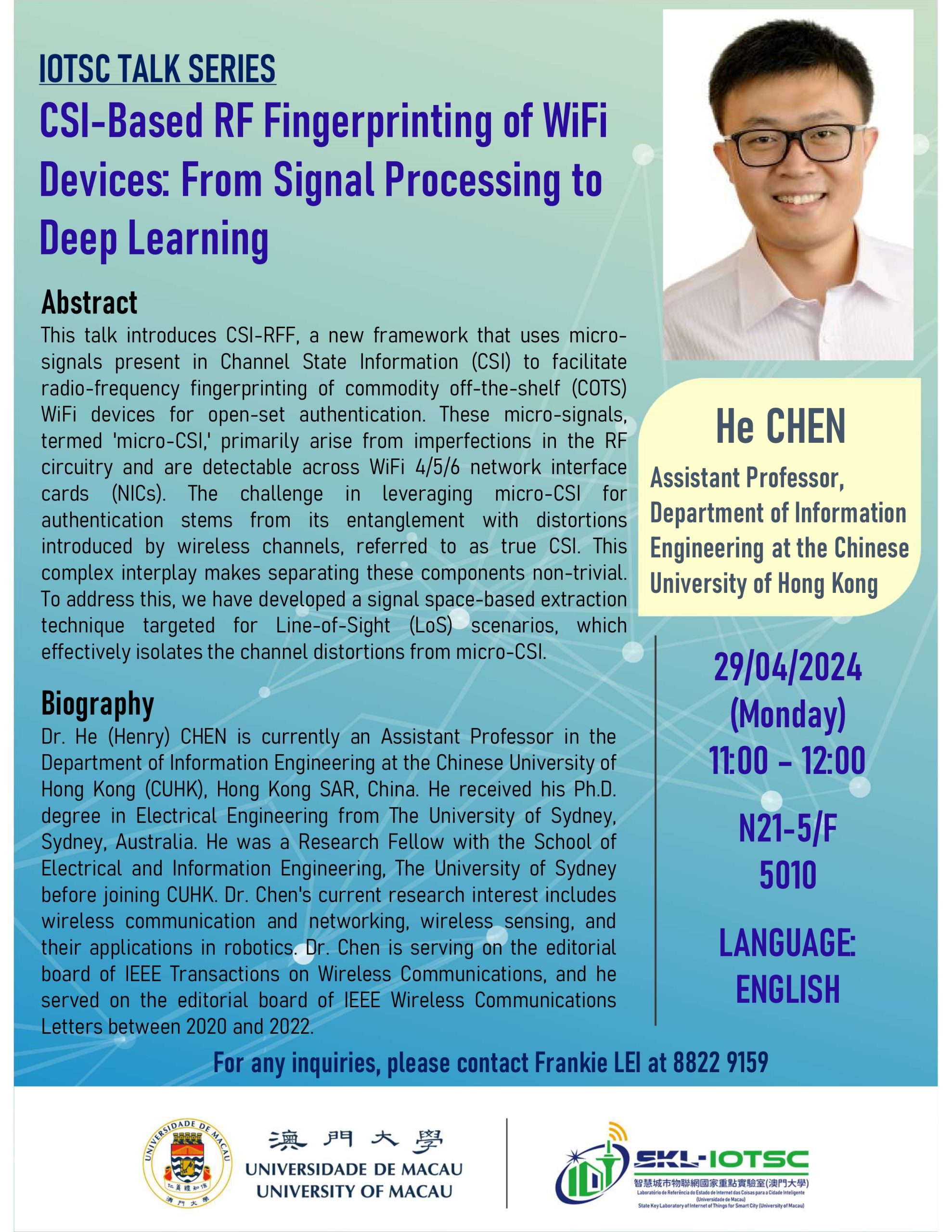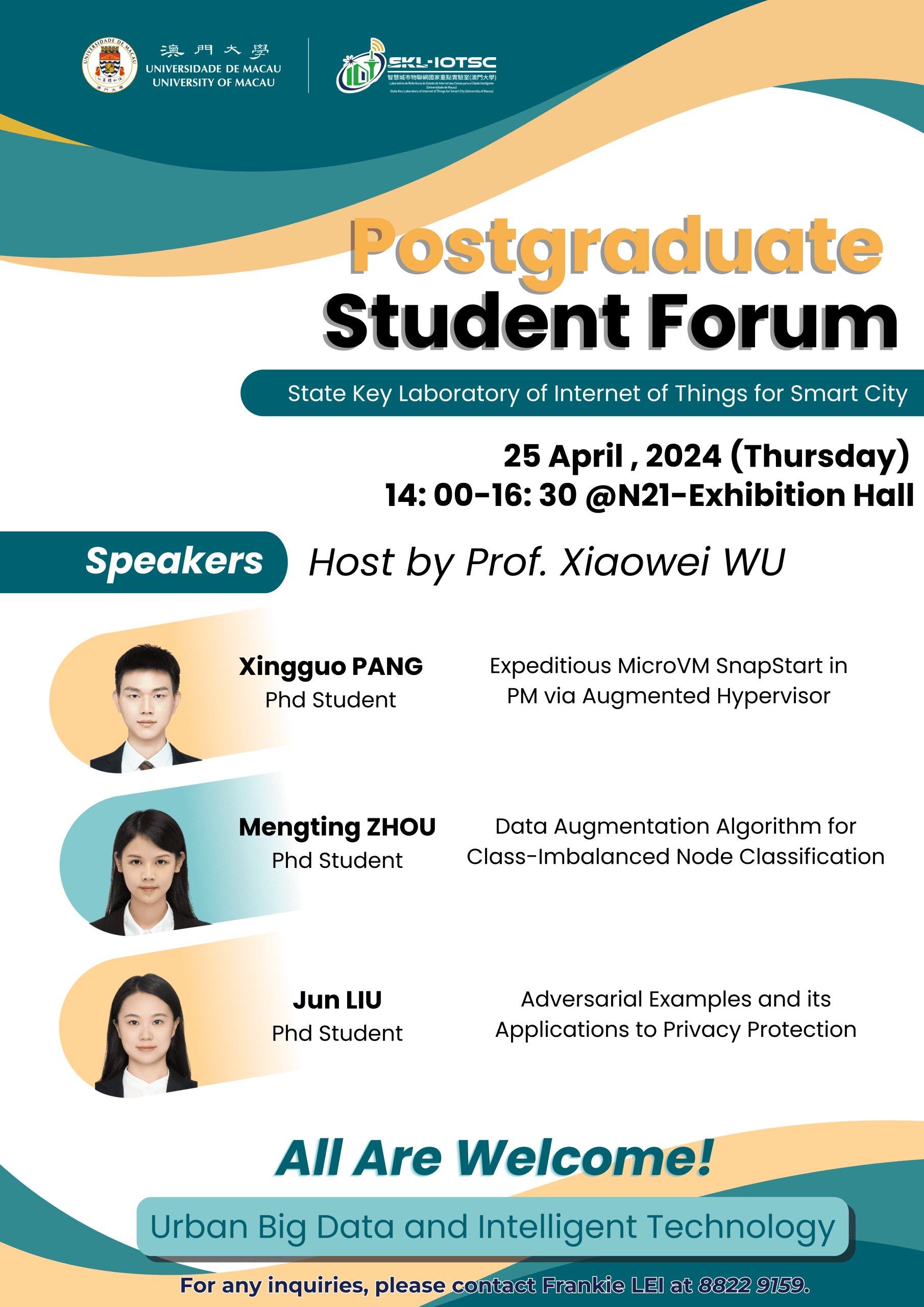IOTSC TALK SERIES: Dynamic dependence of power & communication networks
frankielei2024-05-16T11:43:14+08:00
Dear Colleagues and Students,
The State Key Laboratory of Internet of Things for Smart City would like to invite you to join our “IOTSC Talk Series” on 17/05/2024 (Friday). We are pleased to invite Prof. Hongxun HUI from IOTSC and FST as the speaker.
Dynamic dependence of power & communication networks
Speaker: Prof. Hongxun HUI
Date: 17/05/2024 (Friday)
Time: 15:00 – 16:00
Language: English
Venue: N21-5007 (Exhibition Hall)
Abstract:
The growth of renewable energies elevates the significance of maintaining system balance and imposes more demands on regulation resources. Flexible resources have been extensively regarded as prospective regulation resources within power network operation. However, the dispatch of flexible resources presents the challenges of frequent data transmission and explosive data volume in communication networks. The substantial pressure on communication networks further circumscribes power network operation. This talk will share our studies on enhancing power network operation impacted by dynamic communication networks.
Speaker’s Bio:
Dr. Hongxun Hui is an Assistant Professor with the State Key Laboratory of Internet of Things for Smart City, University of Macau. Previously, he received a B. Eng. degree in 2015 and Ph.D. degree in 2020, respectively, both from the College of Electrical Engineering in Zhejiang University. From 2018 to 2019, he was a visiting scholar at the Advanced Research Institute in Virginia Tech. Dr. Hui‘s research interests are in the optimization of energy systems, control of demand-side resources, and energy economics.
For enquiries: Tel: 8822 9159
Email: frankielei@um.edu.mo
Best Regards,
State Key Laboratory of Internet of Things for Smart City


